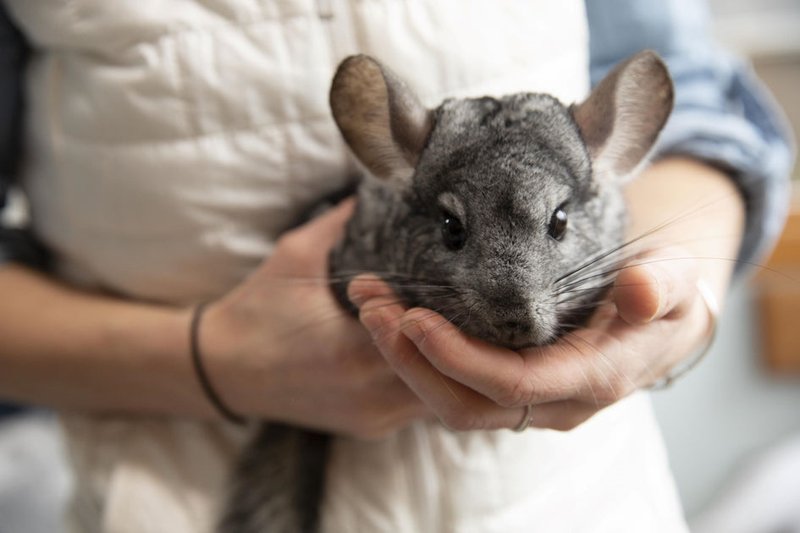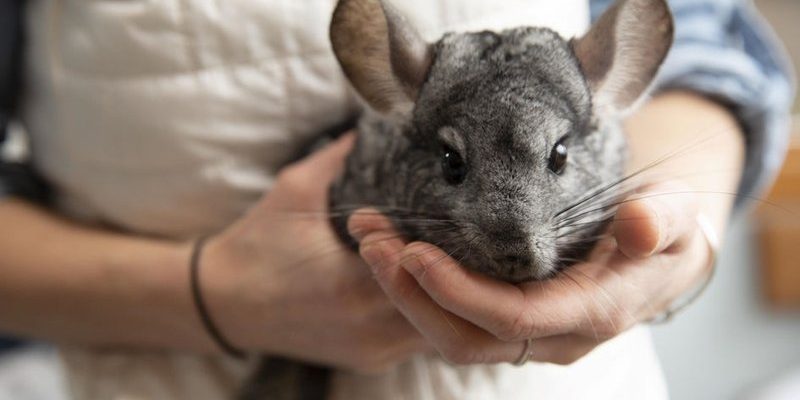
Now, you might be wondering: what exactly should I look out for when it comes to my White Mosaic Chinchilla? Well, just as we monitor our diets and exercise to stay healthy, our pets need similar consideration to thrive. In this article, we’ll dive into the most common health issues these little creatures face and how you can take preventive measures to ensure they live their happiest, healthiest lives.
Dental Problems
One of the most prevalent health concerns for White Mosaic Chinchillas—and chinchillas in general—are dental issues. You see, chinchillas have continuously growing teeth, much like some other rodents. If their teeth become misaligned or if they aren’t worn down properly, they can lead to significant pain, difficulty eating, and other serious health problems.
Here’s the thing: improper chewing can result in tooth overgrowth, which can be quite painful for your pet. This can lead to what’s called *malocclusion*, where the teeth don’t align correctly. To prevent this, you can provide plenty of appropriate chew toys, such as untreated wood blocks or hay. These items help keep their teeth trimmed down naturally.
If you notice your chinchilla has trouble eating, drooling, or seems reluctant to chew, it’s time for a visit to the vet. Regular dental check-ups can catch problems before they escalate.
Digestive Issues
Chinchillas are sensitive little souls, especially when it comes to their digestive systems. They have a unique digestive tract designed to process high-fiber diets, primarily hay. If their diet strays too far from this—think sugary treats or rich pellets—they can develop a slew of issues, including diarrhea or constipation.
To keep their digestive system happy, ensure that your White Mosaic Chinchilla has unlimited access to high-quality hay. It’s like the bread and butter of their diet, offering not just fiber but also essential nutrients. Limit treats and make sure they are specifically formulated for chinchillas.
You might think, “What if they get bored with just hay?” Well, you can sprinkle in some safe, fresh veggies as treats—just a small portion! Always introduce new foods gradually, so their tummies can adjust without undue stress.
Respiratory Problems
Just like us, chinchillas can suffer from respiratory issues. Their sensitive lungs can be affected by poor air quality. Dusty bedding, drafts, or even moldy hay can cause significant problems, leading to conditions like *pneumonia* or other respiratory infections.
To keep your chinchilla’s environment safe, invest in high-quality bedding that’s low in dust. Aspen shavings or paper-based bedding are good choices. Make sure their living space is well-ventilated but not exposed to direct drafts.
If you spot symptoms like sneezing, wheezing, or lethargy, it’s crucial to consult with a vet right away. Catching these signs early can make all the difference in treatment.
Heat Stress
Did you know chinchillas originate from the cooler climates of the Andes mountains? Because of this, they’re not built to handle high temperatures well. They can quickly become overheated, leading to *heat stress*, which can be fatal if not addressed.
In the summer months or in warmer climates, keeping your chinchilla cool is essential. This means avoiding direct sunlight and using air conditioning or fans to manage the temperature in their environment. You also might consider providing frozen water bottles for them to lean against.
Regularly monitor the temperature—ideally, it should be between 60°F and 70°F. If it’s sweltering, keep an eye on your chinchilla for signs of distress, like panting or excessive drinking.
Skin Conditions
Chinchillas have incredibly soft fur, but that also means they can be prone to skin problems. Issues like *fur mites*, dry skin, or fungal infections can arise, especially if they’re not groomed properly or if their habitat isn’t clean.
Regular grooming can help. Brush your chinchilla a couple of times a week with a soft-bristled brush. This not only helps prevent matting but also allows you to check for any unusual skin conditions. If you spot any redness or unusual patches, a vet visit is in order.
Another preventative measure is to keep their living area clean. A clean, dry habitat minimizes the risk of skin issues and keeps your pet comfy.
Preventive Vet Visits
Honestly, one of the best things you can do for your White Mosaic Chinchilla is to schedule regular vet visits. Think of these check-ups as tune-ups for your pet’s health. Even if your chinchilla seems fine, a vet can catch potential issues before they become serious.
During these visits, your vet can do a full health check, monitor weight, and assess dental health. They can also provide advice on diet and care, tailored specifically for your pet. Make it a habit, just like your annual doctor visits.
Being proactive is vital in maintaining your chinchilla’s health. Ask your vet about vaccinations or parasite prevention, specifically if you have other pets or if your chinchilla interacts with other animals.
Final Thoughts
Caring for a White Mosaic Chinchilla can be quite rewarding, but it does come with its challenges. By knowing the common health concerns and taking preventative steps, you can help ensure that your furry friend enjoys a long and healthy life.
Being an attentive and informed owner makes all the difference. You can turn potential problems into positive outcomes with just a little effort and care. So, create a safe, clean environment, monitor their health closely, and don’t hesitate to reach out to a vet when something seems off. After all, your chinchilla relies on you to keep them happy and thriving!

